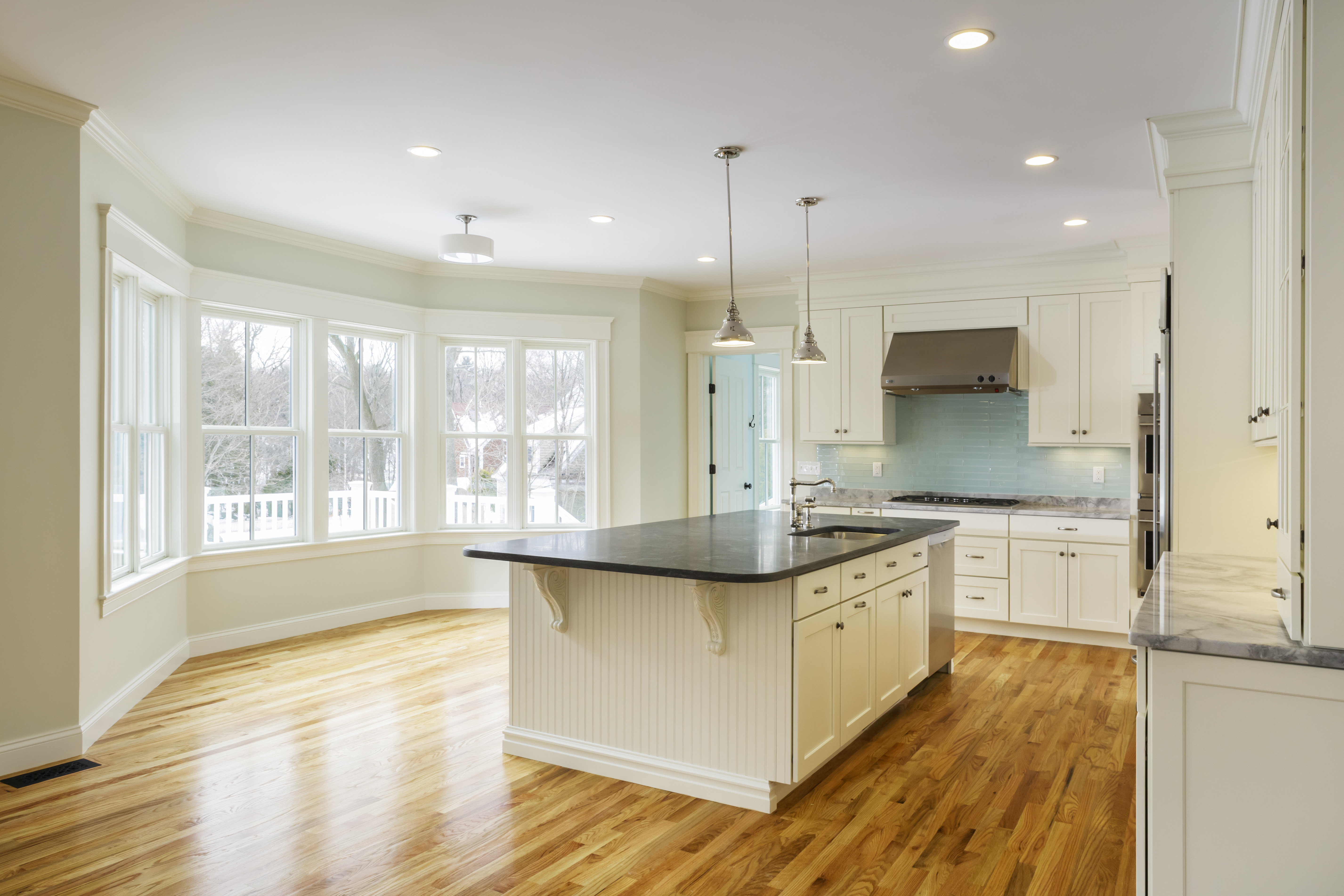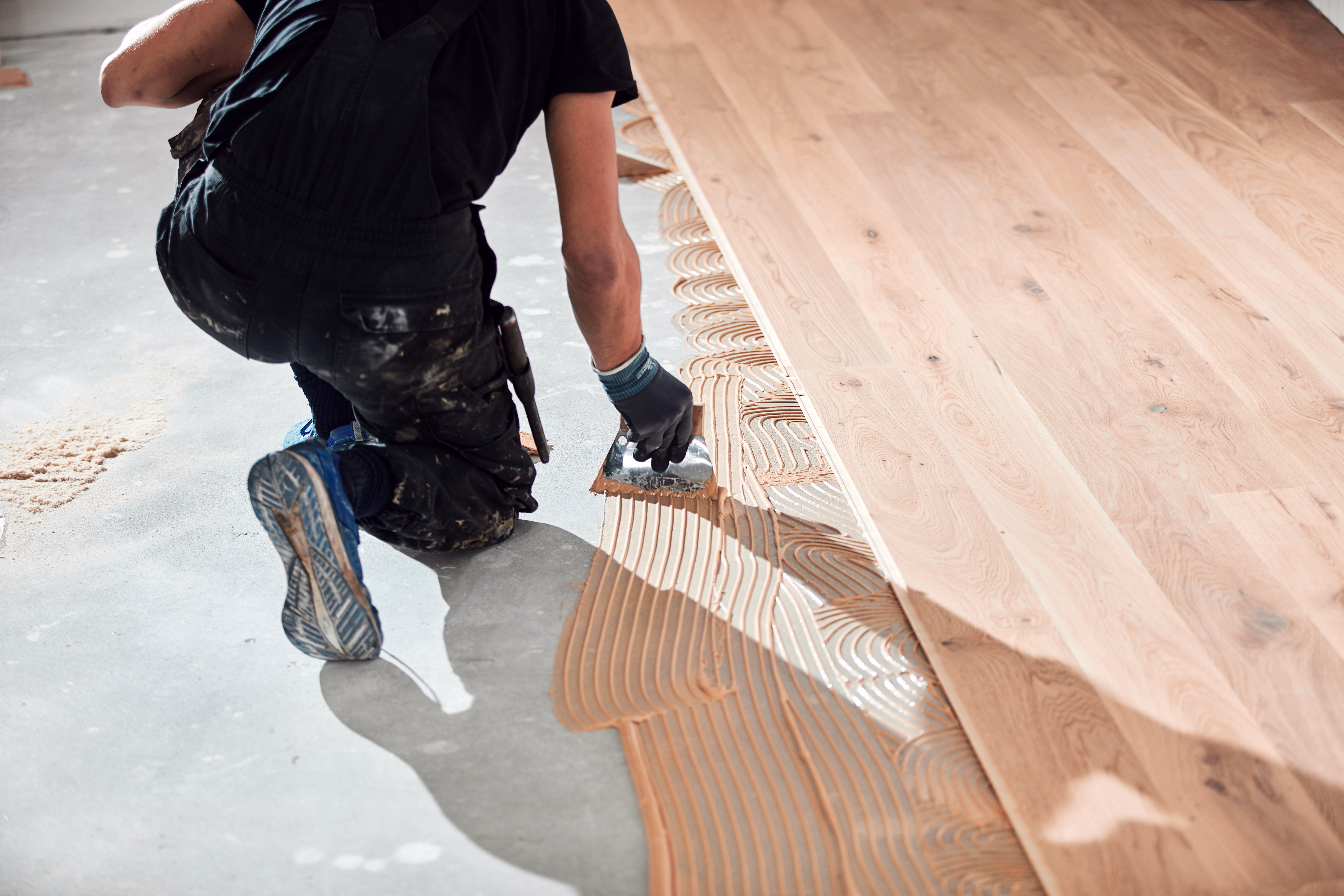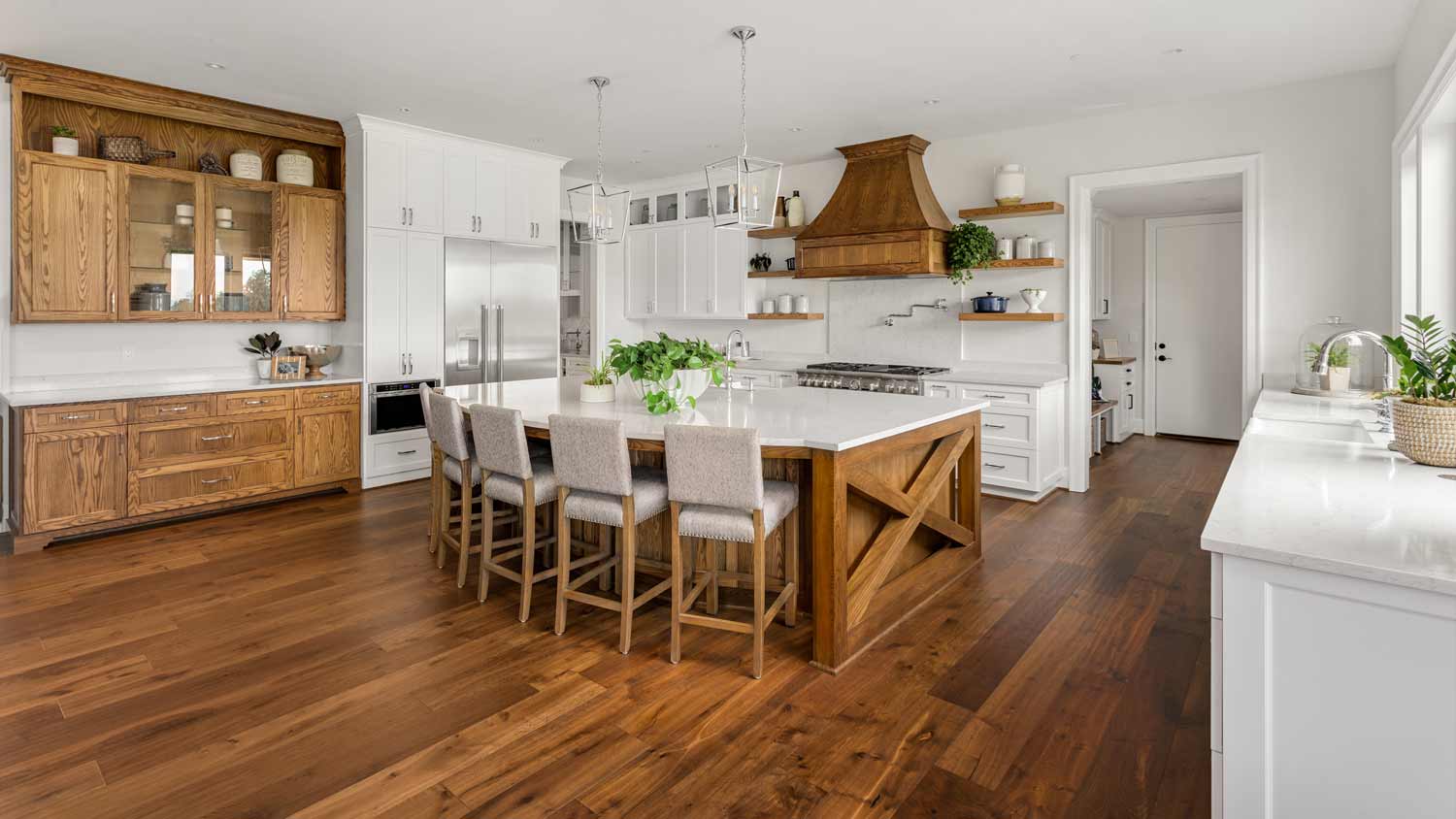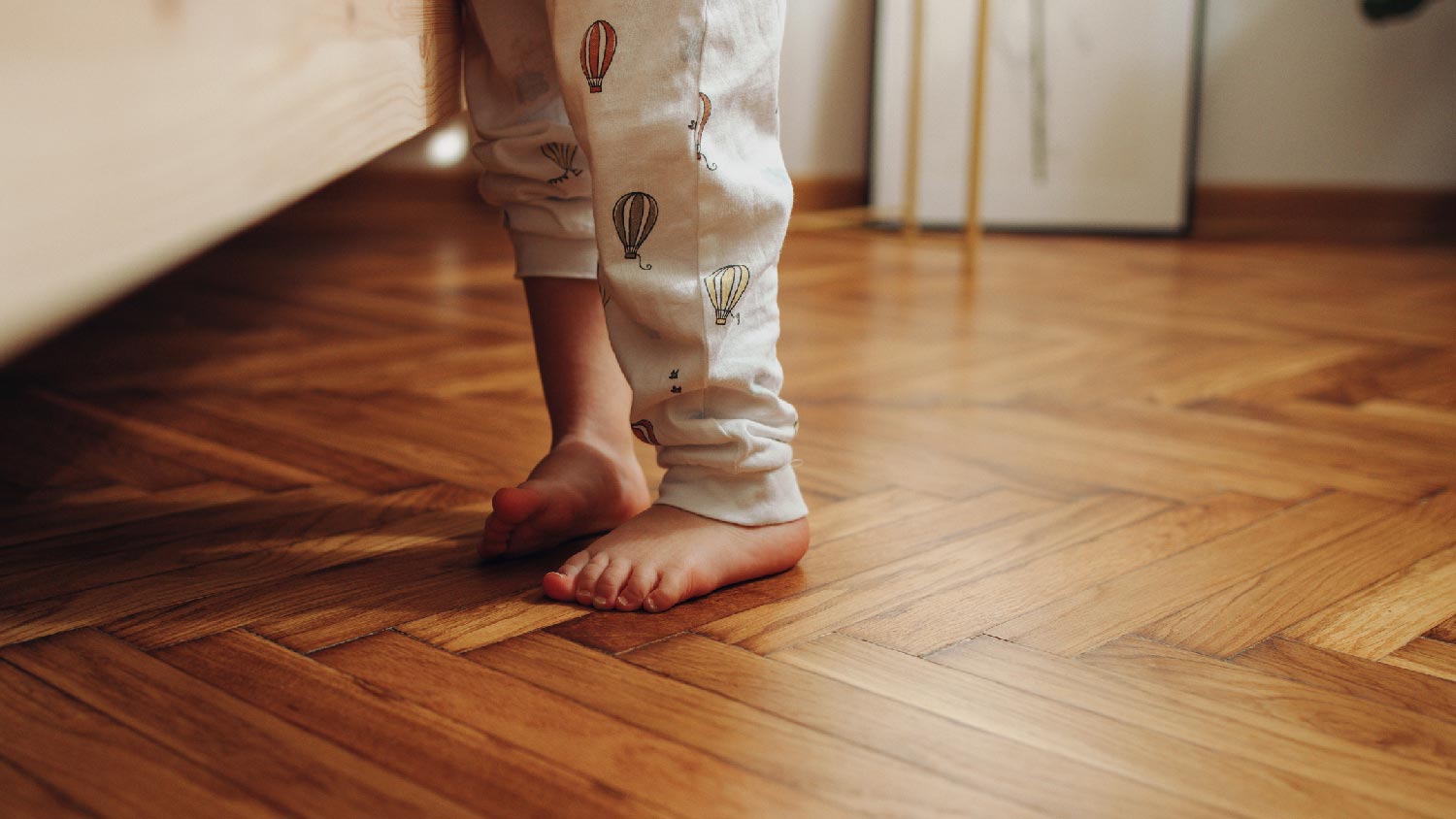
Hardwood floor repair costs depend on the problem. This guide breaks down common costs based on factors like the type of problem, repair method, and whether you hire a pro or DIY.
Hardwood floors and concrete can play nice


With the right preparation and materials, hardwood floors can be installed over concrete.
Following the manufacturer’s recommendations and instructions is essential to successfully completing this project.
Hardwood floors can cost between $2,500 and $7,100 to install, and proper installation can help protect your investment.
Increasingly, homes are built on concrete slab foundations rather than traditional foundations with plywood subfloors. This makes it a little trickier to install hardwood floors, but it’s not impossible. Moisture mitigation, such as the right underlayment or glue, can prevent mold from growing and swelling in the wood. You’ll have to take specific precautions and plan your installation carefully.
The short answer is yes, you can install hardwood floors over concrete, with a few caveats. The main issue is that moisture in the concrete can seep into the hardwood floor, leading to expansion, contraction, mold, and stains.
If you want to install a hardwood floor over concrete, you’ll first have to install a vapor barrier or use glue formulated for concrete that includes vapor barrier elements. Check the manufacturer’s instructions to determine the best vapor barrier or glue to use. Consulting with a wood floor installer near you can also help you make the best decision for your home.
Hardwood flooring costs between $2,500 and $7,100 to install, and making the right choices up front can help make your investment worthwhile. You can use the floating floor installation method or the glue-down method. Floating floors are locked together with a tongue-and-groove system and aren’t attached to the subfloor. Glue-down floors are glued directly to the slab with an adhesive for concrete floor installation.
Engineered hardwood floors are a good alternative to solid hardwood floors when you’re installing the flooring over concrete. Engineered hardwood includes a plywood substrate made of perpendicular layers that are glued together. This method of manufacturing flooring creates a strong substrate that’s topped with a wear layer of natural wood. Engineered wood planks can be glued directly to concrete to create the appearance of a hardwood floor without the pitfalls of solid wood flooring.

Hardwood floor installation can be time-consuming and tricky, but these tips for installing hardwood floors can make it easier:
Choose the proper hardwood flooring for the space, such as solid hardwood or engineered hardwood.
Familiarize yourself with the installation method you choose and have all of your tools and supplies ready. You’ll most likely need a compound miter saw or circular saw, adhesive (if using the glue-down method), measuring tape, speed square, rubber mallet, and pencil.
Decide whether you’ll do a DIY installation or find out who installs hardwood floors in your area.
Carefully read the manufacturer’s directions before starting.
Prepare the room properly, including cleaning the area.
Inspect the subfloor and make sure it is dry and flat.
Acclimate the wood floor by letting it sit in the room where it will be installed to adjust to the temperature and humidity.
Spend extra time on the first row to make sure it’s straight.
From average costs to expert advice, get all the answers you need to get your job done.

Hardwood floor repair costs depend on the problem. This guide breaks down common costs based on factors like the type of problem, repair method, and whether you hire a pro or DIY.

Here’s what you should expect to pay when renting an orbital, drum, vibrating, or edging floor sander—as well as where you can rent them and what else to know.

It’s impossible to keep floors damage-free over the years. Thankfully, the cost to refinish hardwood floors is far less than the price tag to replace them altogether.

Struggling to narrow down your project timeline when deciding whether to paint or refinish floors first? Here's how to figure out your next steps.

Your new floor installation seems off, but you don't know for sure. Here are six signs of a bad hardwood flooring installation to look out for.

Asking your contractor these laminate, stone, and hardwood floor questions before your flooring project starts can help you prepare.